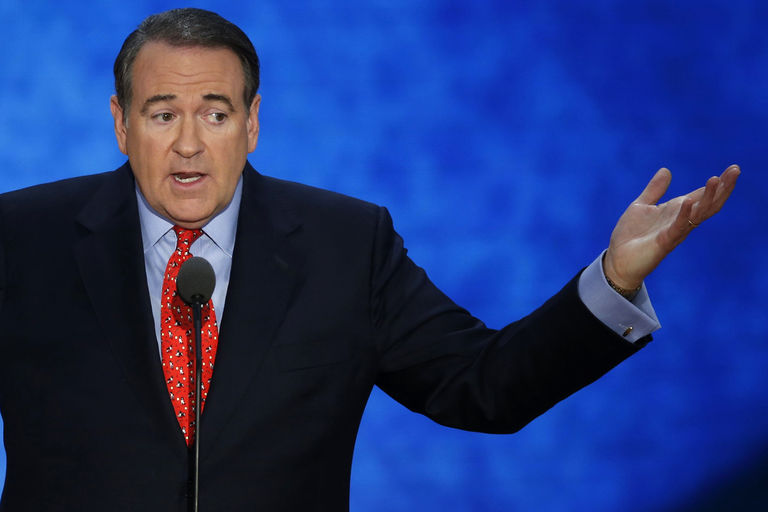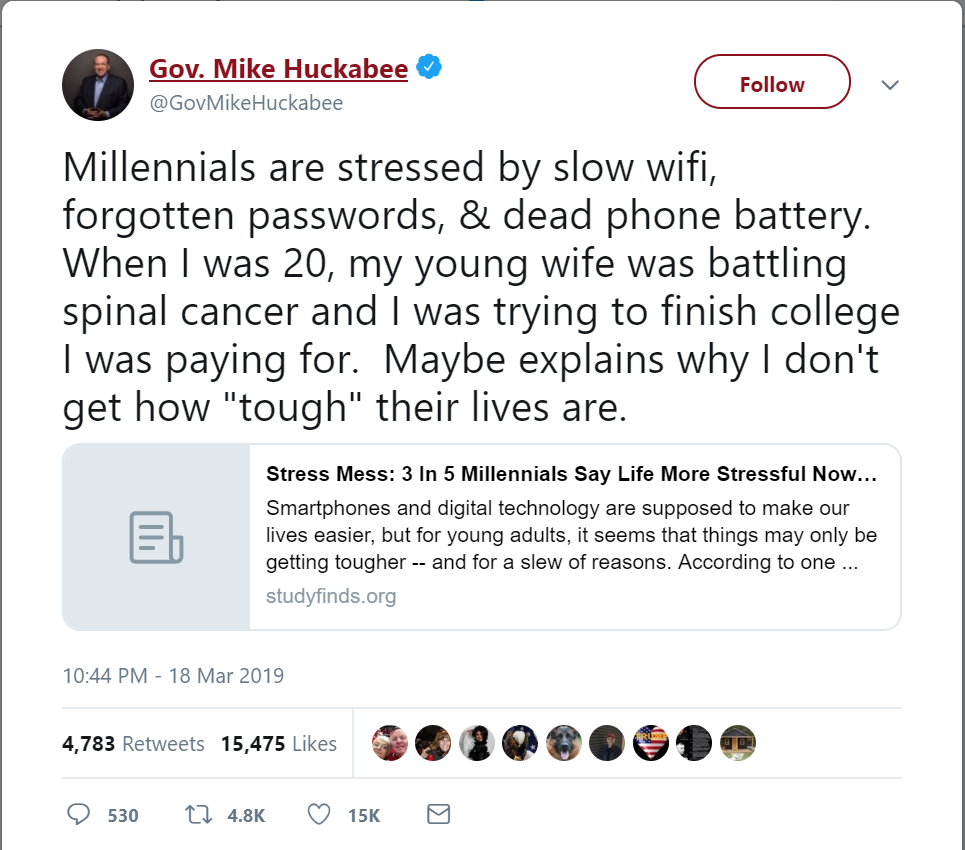

American conservatives are, generally speaking, interested in conserving the American institutions of secular democracy. As such, there are some similarities between conservatism and secularism. There are also differences aplenty, as I’ve covered in the prior four posts.
While not all conservatives are religious, conservatism does defend the religious tradition as more than just an interesting relic that ought to be preserved for its historical significance; conservatism views the sacred to be just as relevant to society and Truth as the secular. To the conservative, what is sacred and what is secular are not inherently in conflict but are both essential ingredients to human flourishing. The previous posts have largely centered around the insufficiency of a secular worldview. In this final post I’d like to turn to two ways in which sound religion enriches society: namely, a structure for ordered liberty and a dash of mystery.
Ordered Liberty
As was discussed at length in the Can America Survive without Christianity? Saving Elephants podcast episode, secular institutions are not self-sustaining. It is true that the Founding Fathers developed the American system of government to operate independently of religious supervision or intertwining. But they (apart from Jefferson) did so recognizing that the American public was largely religious and entrusted that we would carefully balance the secular enterprise with our sacred traditions.
Ordered liberty—a system that respects the rights of the individual while possessing enough authority to prevent the strong from oppressing the weak—provides us with many benefits. But it does not provide for every human longing. For, while secular liberalism makes societies rich with material goods and physical safety, it cannot give us a higher sense of purpose. And humans are purpose-seeking beings.
“As political philosophy derives its sanction from ethics, and ethics from the truth of religion, it is only by returning to the eternal source of truth that we can hope for any social organization which will not, to its ultimate destruction, ignore some essential aspect of reality,” wrote the twentieth century’s prominent poet T. S. Eliot, “The term ‘democracy,’ as I have said again and again, does not contain enough positive content to stand alone against the forces that you dislike—it can easily be transformed by them. If you will not have God (and He is a jealous God) you should pay your respects to Hitler or Stalin.”
Conservatives are sometimes accused of possessing a sort of alarmist attitude about society’s inclination towards the extremes of fascism or communism. Yet even a cursory study of the history of the last century would suggest that people living in liberal democracies are oddly susceptible to the sort of radicalism that leads to these evils. Conservative thinker Russell Kirk foretold the resurgence of such extremism with the loss of religious tradition in the last century:
“Now it appears to be that twentieth-century collectivism is in part a reaction against doctrinaire liberalism, and in part the natural consequence of that system of thought. The spiritual isolation and the decay of a sense of community which accompanied the triumph of liberalism cannot be endured long by any people. Love lacking, compulsion is employed to hold society together. And the materialism of the Marxist is only the logical culmination of the materialism of the doctrinaire liberal.”
Liberalism—which seeks to liberate the individual from all constraints—may ultimately undo associations of family, faith, and community that individuals need to flourish. And when all that’s left are the individual or the collective, the majority will choose the collective. A free society, meanwhile, demands order. But where does society get its sense of order? “Religion is the basis of civil society, and the source of all good and of all comfort,” wrote British statesman Edmund Burke, who is largely regarded as the father of modern conservatism. But how is religion the basis of order? G. K. Chesterton—yet another British thinker—provides us with an explanation of how this came to be:
“The eighteenth-century theories of the social contract have been exposed to much clumsy criticism in our time; in so far as they meant that there is at the back of all historic government an idea of content and co-operation, they were demonstrably right. But they really were wrong in so far as they suggested that men had ever aimed at order or ethics directly by a conscious exchange of interests. Morality did not begin by one man saying to another, ‘I will not hit you if you do not hit me’; there is no trace of such a transaction. There is a trace of both men having said, ‘We must not hit each other in the holy place.’ They gained their morality by guarding their religion. They did not cultivate courage. They fought for the shrine, and found they had become courageous. They did not cultivate cleanliness. They purified themselves for the altar, and found that they were clean.”
“Men’s passions are held in check only by the punishments of divine wrath and the tender affections of piety,” argued Russell Kirk, “The sovereignty of God, far from repressing liberty, establishes and guarantees freedom; authority is not the antagonist of liberty, but its vindicator.” It is certainly true that much evil has been done in the name of religion. And it is true that not all religious doctrines are of equal value or soundness. Yet the absence of religion has yet to produce a society of ordered liberty. And a free society that rids itself of religion will soon rid itself of order and liberty.
The Transcendence of Mystery
Russell Kirk scoffed at the systems of rational ideologies of the past century. He firmly believed that something greater than reason was necessary to hold any human construct together: “All great systems, ethical or political, attain their ascendancy over the minds of men by virtue of their appeal to the imagination; and when they cease to touch the chords of wonder and mystery and hope, their power is lost, and men look elsewhere for some set of principles by which they may be guided.” The utilitarian ethic of the greatest good for the greatest number may sound appealing enough in theory, but it doesn’t work in practice; because human beings are creatures with not only a body and mind, but also a soul that demands nourishment.
What feeds the soul? Creeds, community, religious tradition, cult, and the like. We have a need for the mysterious—something that transcends our mortal circumstances. Kirk believed in the importance of myth. “We live by myth. ‘Myth’ is not falsehood; on the contrary, the great and ancient myths are profoundly true…A myth may grow out of an actual event almost lost in the remote past, but it comes to transcend the particular circumstances of its origin, assuming a significance universal and abiding.” A myth may be sacred or secular. The history of most nations—and America is no exception—are steeped in both religious and secular lore. Yet, here again, we do not have lasting, compelling examples of a purely secular myth sustaining a civilization. It often can’t even sustain an individual.
While some have found solace in some variation of secular humanism or stoicism, most humans—across cultures, around the world, and in every moment in history—have pointed to their religious faith as the true source of comfort in times of suffering. Indeed, the secular worldview is particularly vulnerable to suffering. “In a society without religion, we see emerging a kind of contagious hardness of heart, an assumption on every side that there is no tragedy, no grief, no mourning, for there is nothing to mourn. There is neither love nor happiness—only fun,” observed British philosophy Roger Scruton, “In such circumstance, the loss of religion is the loss of loss. But for conservatives that is not the end of the matter. Western civilization has provided us with another resource, through which our losses can be understood and accepted. This resource is beauty. The features of Western civilization that have made loss such a central feature of our experience have also placed tragedy at the center of our literature. Our greatest works of art are meditations on loss—every kind of loss, including that of God himself.”
Beauty, like myth, is a form of mystery; something that transcends the here and now. As a specialist in the field of aesthetics, Scruton knows a thing or two about the mystery of beauty. “The haste and disorder of modern life, the alienating forms of modern architecture, the noise and spoliation of modern industry—these things have made the pure encounter with beauty a rarer, more fragile and more unpredictable thing for us,” he laments, “Still, we all know what it is, suddenly to be transported by the things we see, from the ordinary world of our appetites to the illuminated sphere of contemplation.” This transporting—this transcendent experience—is woefully lacking in the secular realm but is bountiful in the sacred.
And it’s not just beauty that’s hard to spot in a world scrubbed of the sacred. “Knowledge, love, and beauty cannot endure in a world that acknowledges only Nature,” insisted Kirk, “They have both their roots and their consummation in God, and people who deny God must lose both the definition and the appreciation of knowledge, love, and beauty…Men who endeavor to reduce religion to matter-of-fact morality, or elevate science to the estate of a dogmatic creed, have shut their eyes to the sources of wisdom that distinguish civilized men from primitive beings.” Those who haughtily rely on their own wisdom to learn all they need to know are bereft of the enriching power of mystery.
“Culture arises from the cult; and that when belief in the cult has been wretchedly enfeebled, the culture will decay swiftly. The material order rests upon the spiritual order,” taught Russell Kirk. We have no record of a stable, free society that arose from purely secular means—of a society whose myths and lore excluded the sacred in exchange for the secular. “What ails modern civilization? Fundamentally, our society’s affliction is the decay of religious belief. If a culture is to survive and flourish, it must not be severed from the religious vision out of which it arose. The high necessity of reflective men and women, then, is to labor for the restoration of religious teachings as a credible body of doctrine.”
Looking Behind as We Press Ahead
In all this talk of the importance of religion to society (to say nothing of the individual) I don’t want the reader to mistakenly assume that the mere belief in the importance of religion is sufficient. The religious tenants must be believed in themselves. For any religion that is followed chiefly out of some sense of what benefits it might provide is no religion at all. I cover this in detail in my How Valuable are Your Values? series, so I won’t belabor the point here.
While the conservative and secularist have some things in common, the conservative—religious or not—will always go at least one step beyond where the secularist is comfortable in insisting on the importance of religion for the individual and society. For this reason, the secularist is ill prepared to address our root problems. When you reflect on the state of our culture—our entire civilization—do you see us as ascending or descending? Do you see our continuous secularization resulting in a restoration of beauty and hope and purpose and altruistic generosity? Do you feel that American communities—be they communities in general or your own community—is doing better in this enlightened age than they faired only a few generations prior?
The secularist may rightly recognize that America is heading in the wrong direction but have little more to say beyond the tired ideological prescriptions. The conservative spirit looks back as it presses forward. Not back to a place of regression and oldfangled superstitions, but back to the answers we’ve inherited from our ancestors’ ancient secular and sacred wisdom.
from savingelephantsblog
via https://www.savingelephantsblog.com/saving-elephants-blog


